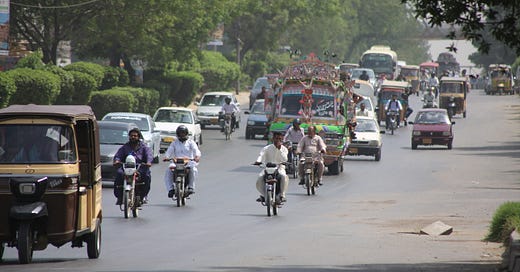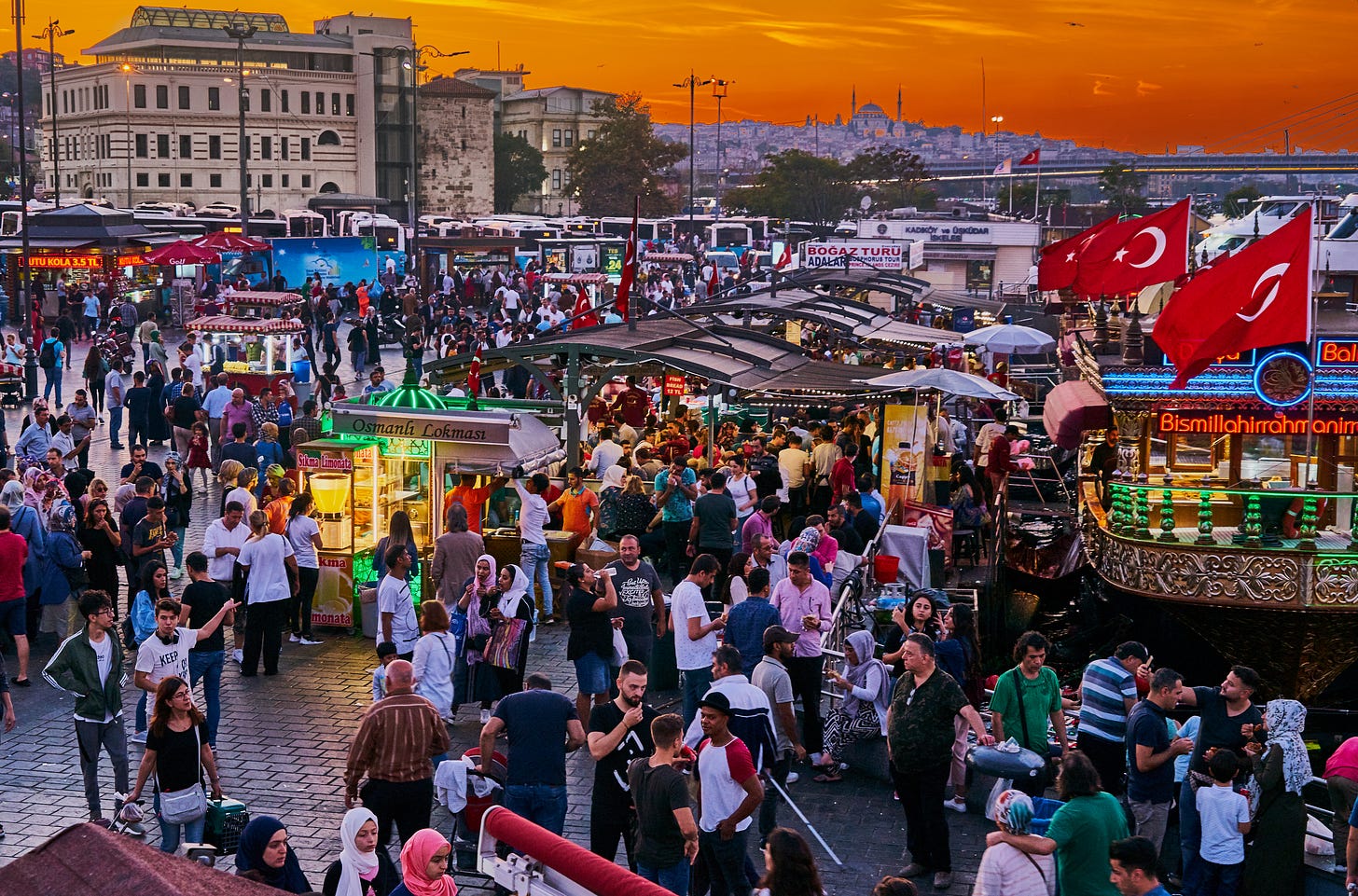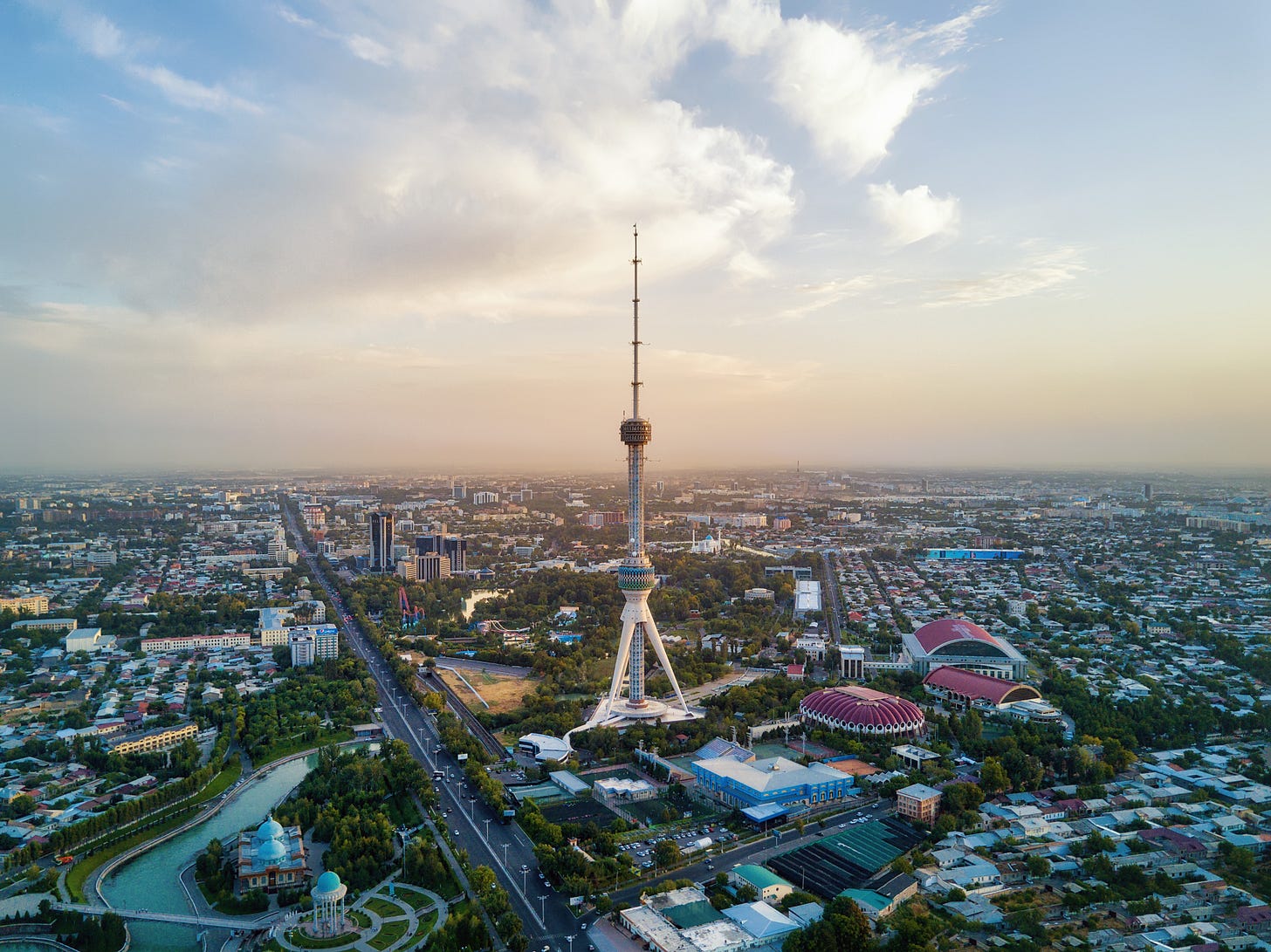Emerging Markets Daily - June 13
Saudis Shift Investment from Gwadar to Karachi, China Rebuts G-7, Turkey Tourism Season Under Threat, S. Africa Tide Turning?, Uzbekistan-Tajikistan Trade
The Top 5 Emerging Markets Stories from Global Media - June 13
Pakistan's Gwadar Loses Luster as Saudis Shift $10bn Deal to Karachi
Nikkei Asia
“Saudi Arabia has decided to shift a proposed $10 billion oil refinery to Karachi from Gwadar, the center stage of the Belt and Road Initiative in Pakistan, further supporting the impression that the port city is losing its importance as a mega-investment hub.”
“On June 2, Tabish Gauhar, the special assistant to Pakistan's prime minister on power and petroleum, told the media that Saudi Arabia will not build the refinery at Gwadar but will construct it along with a petrochemical complex somewhere near Karachi. He added that in the next five years another refinery with a capacity of over 200,000 barrels a day could be built in Pakistan.”
“…The decision has shattered the image of Gwadar as an up-and-coming major commercial hub. In February 2020, the Gwadar Smart Port City Masterplan was unveiled, forecasting that the city's economy would surpass $30 billion by 2050 and add 1.2 million additional jobs. Local officials started calling Gwadar the future ‘Singapore of Pakistan.’” Adnan Aamir reports
Geopolitics - G7 summit: China Says ‘Small’ Groups Do Not Rule the World
BBC
“China has warned the G7 leaders that the days when a ‘small’ group of countries decided the fate of the world were long gone.”
“…On Sunday, the G7 leaders are expected to issue a closing declaration promising more financial support for developing countries hit by the climate crisis, and funds for infrastructure projects in the developing world, an alternative to a Chinese programme.”
“President Biden said he wanted the US-backed Build Back Better World (B3W) plan to be a higher-quality alternative to Beijing's Belt and Road Initiative (BRI). The scheme has helped finance trains, roads, and ports in many countries, but has been criticised for saddling some with debt.”
“…But there appears to be no consensus yet among the G7 nations over whether China is a partner, a competitor or a security threat, our correspondent adds.” BBC News reports
Dollar Blow for Turkey as Tourism Season Runs into the Sand
Financial Times
“In the resort destination of Marmaris, nestled between turquoise waters and pine-covered mountains on Turkey’s south-west coast, hotelier Mustafa Deliveli is preparing for a summer he fears could sink the town’s tourism business.”
“Reservations at Deliveli’s Emre Hotel are at 15 per cent of capacity for June, one of the season’s ‘most important months’, when its rooms are normally full, he said. But a spring coronavirus surge has prompted Russia, Germany and Britain, Turkey’s three biggest tourism markets, to impose onerous travel restrictions — threatening a sector that provides millions of jobs and vital hard currency.”
“‘We’ve had our share of crises in tourism over the years but this is unprecedented,’ said Deliveli, who has furloughed a third of his staff and shut half of the hotel to cut costs. ‘We kept our heads above water last year and had high hopes for this season. It has been a great let-down.’”
“A collapse in tourism would ripple out to the wider economy. Turkey relies on foreign currency inflows from visitors to finance its foreign debt and a current account deficit that stands at 5 per cent of gross domestic product, as well as to restock forex reserves depleted to shore up a weak currency.”
“Income from tourism also reduces Turkey’s trade deficit and underpins the lira, which has lost 14 per cent of its value this year as concern grew that Erdogan’s pressure on the central bank to cut interest rates was fuelling double-digit inflation.” Ayla Jean Yackley reports
Ramaphosa on Economic Reform Roll Bolsters South African Markets
Bloomberg
“South African President Cyril Ramaphosa is finally making good on a long-standing pledge to enact policy reforms, signaling the tide may be turning for the coronavirus-battered economy.”
“The ruling African National Congress sidelined his main rival Ace Magashule last month, cementing his control of the party and giving him more leeway to take tough decisions. Since then, his administration has sold a majority stake in the state airline and taken a decisive step to tackle crippling energy shortages. It’s also reduced the debt exposure of the state power utility and a fund that compensates road-accident victims -- the government’s two biggest contingent liabilities.”
“With the unemployment rate sitting at a record high of 32.6%, the country in the midst of a third wave of Covid-19 infections and anger rife among millions of shantytown residents about a lack of housing, water and basic services, a policy shift is overdue.” Michael Cohen and Prinesha Naidoo report
Uzbekistan, Tajikistan Do $1 Billion in Deals, Eye Trade Bonanza
(Tashkent, Uzbekistan)
Eurasianet
“Uzbekistan’s president was met this week with pomp and ceremony in Tajikistan at the start of a three-day visit that produced pledges for more than $1 billion in commercial deals and joint projects.”
“It is a stark turnaround in affairs from only a few years ago, when the former fellow-Soviet neighbors viewed each other with barely disguised suspicion.”
“The mood had been set the day before at a maiden Tajikistan-Uzbekistan investment forum attended by around 300 businesspeople in the southern Tajik city of Bokhtar. Uzbekistan’s Foreign Trade Ministry said in a statement that the event produced business deals worth $730 million.”
“Sectors of industry involved in the tie-ups include automobile, electronics and household appliance manufacturing, high-yield agriculture and food processing.” Kamila Ibragimova reports





